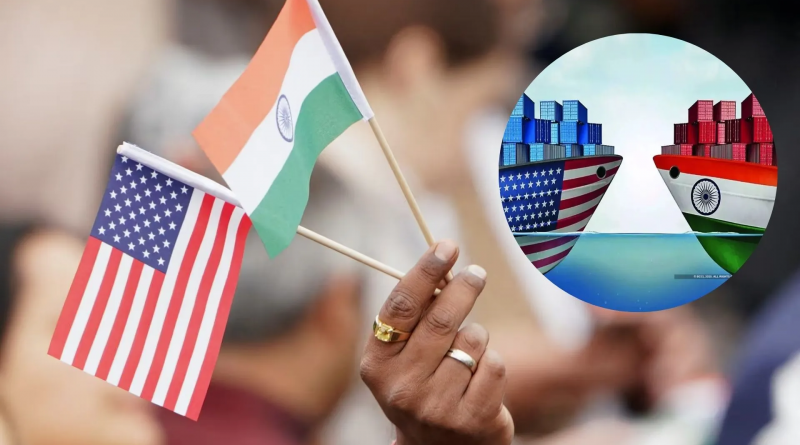India’s Economic Peril: US, China Woes Loom Larger Than Trump Tariffs
by Deepshikha Singh
Aiyar cautioned that the simultaneous downturn in the world’s two largest economies would inevitably exert a strong downward pull on the entire global economy.
While the recent trade tensions between the United States and India have garnered significant attention, economists warn that a potential slowdown in the world’s two largest economies, the US and China, poses a far greater threat to India’s economic stability. Swaminathan Aiyar, a prominent economist and consulting editor at ET Now, emphasized that the ripple effects of a major recession in these global powerhouses would significantly outweigh the impact of any bilateral tariff disputes.
Aiyar’s concerns arise amidst escalating uncertainty in the global economy, largely fueled by President Donald Trump’s aggressive trade policies. Despite a temporary 90-day pause on planned tariffs against several nations, including India, following a sharp decline in US stock markets, the underlying tensions remain. Moreover, China’s retaliatory measures, including increased tariffs on US goods, further exacerbate the situation.
The economist had previously criticized Trump’s tariff announcements, labeling them a potential “Recession Day” rather than a “Liberation Day,” as the president had claimed. He argued that these policies would disrupt global supply chains, impede economic growth, and plunge the world economy into turmoil. Aiyar dismissed Trump’s assertion that tariffs would revitalize American manufacturing, predicting instead economic disruption.
The erratic nature of Trump’s trade policies, with frequent changes occurring within hours, has created a climate of uncertainty for economists and investors. Goldman Sachs, while revising its recession forecast, still anticipates a significant US economic slowdown. Conversely, JPMorgan Chase maintains a more cautious outlook, assessing the probability of a US recession as still higher than not. This divergence in expert opinion underscores the precarious state of the global economic landscape, even after the temporary tariff reprieve.
India’s central bank, the Reserve Bank of India (RBI), has already responded to these growing global uncertainties by reducing its economic growth forecast for the current financial year. The RBI also lowered the repo rate, citing concerns about weakening demand, tighter liquidity, and emerging global risks stemming from the escalating trade tensions.
Moody’s Analytics has echoed these concerns, trimming its growth outlook for India in 2025, attributing the downward revision to the potential fallout from the US tariff measures. Despite the temporary freeze on some tariffs, Moody’s analysts highlighted that their current forecast reflects the potential economic damage should these tariffs be fully implemented in the future.
Earlier warnings from leading global banks, including Morgan Stanley and Nomura, had already identified India, along with Thailand, as among the economies most vulnerable to the impact of reciprocal tariffs imposed by the US on key trading partners.
According to Aiyar, a full-scale financial meltdown may have been averted, primarily due to pressure from the bond market rather than diplomatic efforts. However, he remains convinced that a US recession is highly probable. Furthermore, he anticipates a significant economic slowdown in China, even if the country avoids negative GDP growth, effectively mirroring the impact of a recession.
Aiyar cautioned that the simultaneous downturn in the world’s two largest economies would inevitably exert a strong downward pull on the entire global economy. The unpredictability of President Trump’s future trade actions has become an embedded factor in the global economic equation, influencing investor behavior and fostering a climate of risk aversion.
The prevailing uncertainty surrounding US trade policy is prompting investors to prioritize safety, further dampening economic activity. As Aiyar aptly stated, the constant ambiguity of Trump’s next move is “getting baked into everything else,” leading to a cautious approach across global markets.
In conclusion, while the bilateral trade discussions between the US and India are important, the potential for a significant economic slowdown in the United States and China presents a far more substantial risk to India’s economic prospects. The interconnected nature of the global economy dictates that a downturn in these major engines of growth would have widespread and severe consequences, dwarfing the impact of any specific tariff disputes. The prevailing uncertainty and the potential for a synchronized slowdown necessitate a cautious and adaptive approach to economic policy in India.
Deepshikha Singh is an analytical content writer who enjoys turning complex information into compelling stories. Her passion lies in uncovering insights and sharing them in a way that’s both informative and engaging.



